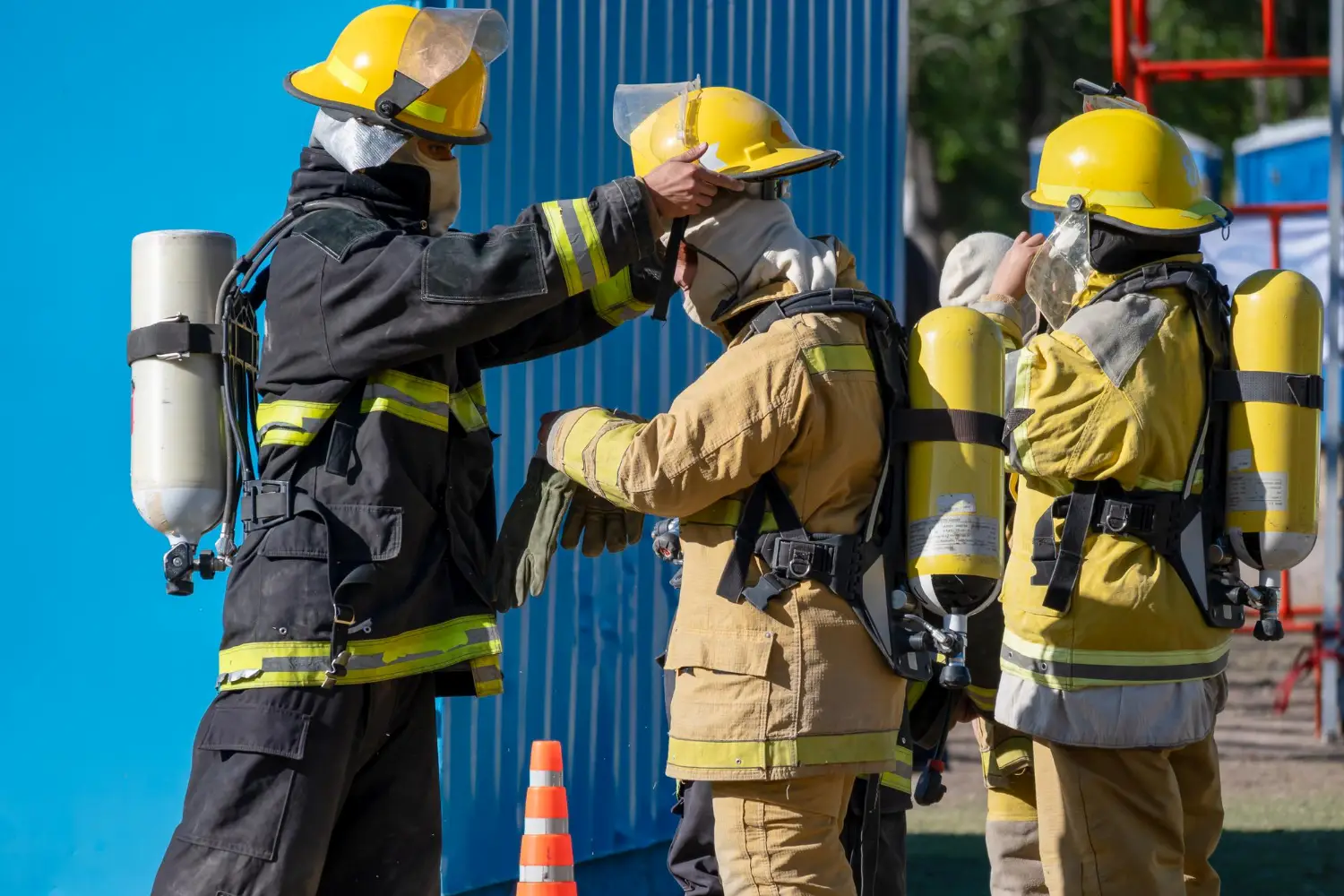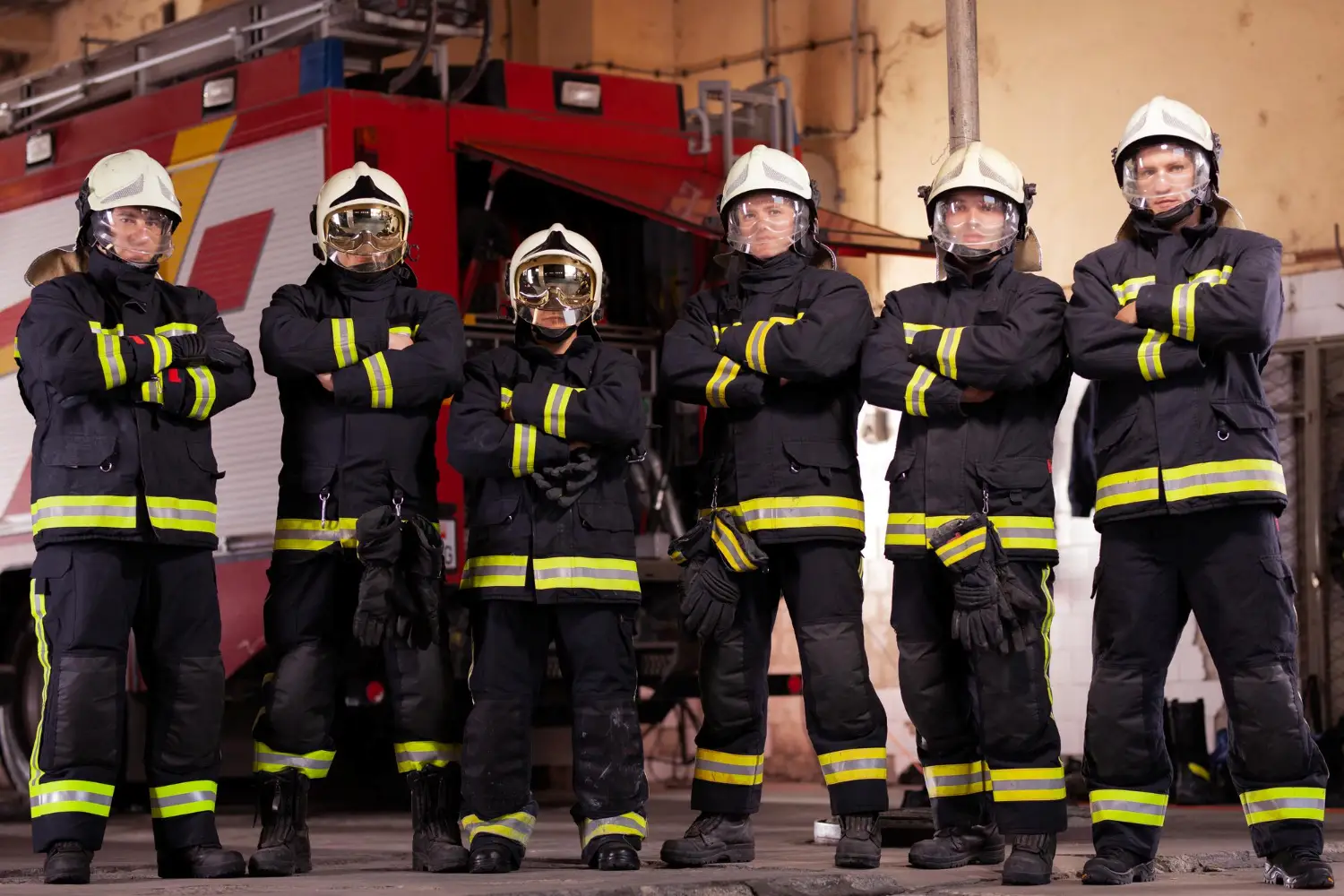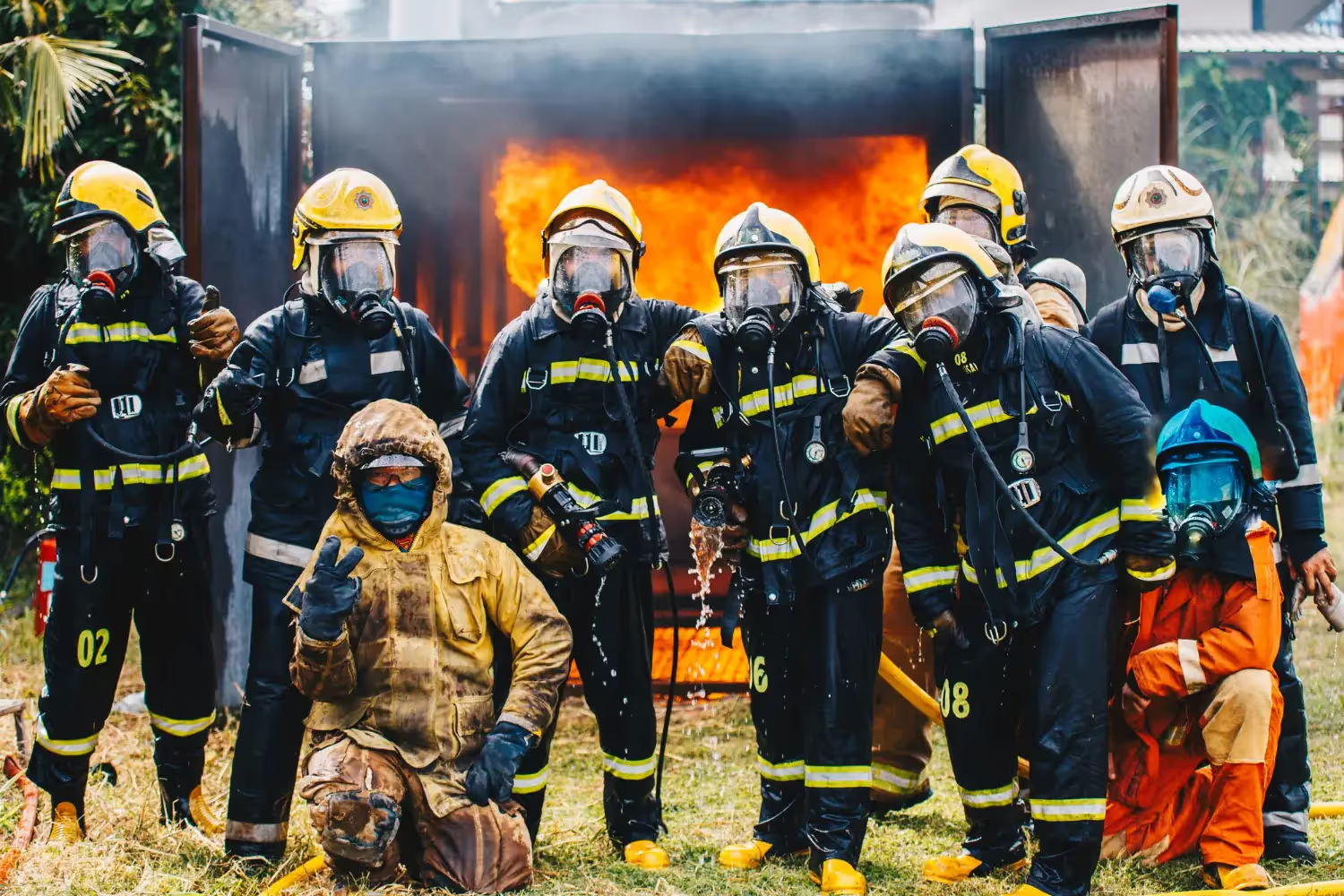50 Fire Investigator Interview Questions to Ask Witnesses and Suspects [With Checklist]

![50 Fire Investigator Interview Questions to Ask Witnesses and Suspects [With Checklist]](https://cdn.prod.website-files.com/68e62031778f06df7032a506/68ec98bb7d21b6f02b640bdf_674ff8e9032c36ceea80d5ce_interview%2520questions%2520to%2520ask.jpeg)
Fire investigations are like intricate puzzles, and investigators must use a mix of intuition, science, and the information they gather from suspects and witnesses to piece the puzzle together. Interviews are the key to understanding the events that took place before, during, and after a fire. They provide context, reveal motives, and sometimes deliver the crucial clue that breaks a case wide open.
Asking the right questions, however, is an art form. It requires skill, preparation, and a keen sense of human behavior. The goal is not only to collect facts but also to piece together a coherent narrative that might explain what happened and why. In this post, we’ll look into the types of questions that can make or break a fire investigation, along with the best practices for conducting effective interviews.
One of the best ways to ensure that you don’t miss out on asking any important fire investigation interview questions is to carry a checklist with you. We’ve put together a checklist of important questions in different categories to help you conduct witness interviews systematically.
Fire investigation witness interviews begin by laying a strong foundation. Fire investigators need to establish the basic facts before they start with the nuanced inquiries. To set the stage for a more in-depth discussion, start with questions like "Where were you when the fire started?" or "How did you first become aware of the fire?" These fire investigation interview questions will make sure the timeline is clear and will later provide important context for the investigation.
Some key questions to begin with include:
- What is your name, and how can we contact you?
- Confirm the fire location address.
- What was the date and time of the fire?
- Can you describe the structure type (e.g., residential, commercial)?
- What were the weather conditions at the time of the fire? Were there any storms?
- How did you first notice the fire?
- What did you do immediately after discovering the fire?
- Were you with anyone else at the time?
- Did you see or hear anything unusual before the fire?
- Do you know of anyone who might have been near the fire’s location before it started?
- Did you smell anything unusual, such as gasoline or chemicals, before noticing the fire?
These questions help the investigator understand what occurred and establish a timeline of events. They also help you evaluate the witness’s memory, demeanor, and potential biases.
As the conversation progresses, you should shift your focus to the specifics of the fire incident. You can ask the witnesses to describe the location of the fire’s origin, recall unusual sights or sounds, or specify how quickly the flames spread. Each response helps build a detailed picture of the incident while allowing you to gauge the witness’s reliability and demeanor. For example, if someone mentions hearing a loud bang before noticing smoke, it could hint at an explosion or a deliberate act of arson.
Questioning Witnesses About Fire Incidents
Witnesses often hold valuable clues, even if they don’t realize it. Investigators can uncover useful information by asking targeted questions about their observations. Encouraging witnesses to share their experiences in their own words can lead to surprising revelations. Open-ended questions, like "What stood out most to you during the fire?" often provide details that a structured question might miss. This can help you find important perspectives that can shape the investigation.
Some sample questions include:
- Can you describe the area where the fire started?
- Who discovered the fire, and what time was it discovered?
- Were there any witnesses? If so, can you provide their contact details?
- Was the property occupied at the time? If so, by whom?
- Were there any unusual observations before the fire, such as recent repairs or renovations?
- Were there any flammable materials stored on-site? If so, where?
- Was the property locked at the time of the fire, and who has access to the keys?
- Did the fire department respond? Which department, and what was their estimated response time?
- Did you notice anyone acting strangely before the fire began?
- Were there any unusual smells or sounds?
- How quickly did the fire spread after you first noticed it?
- Did you see anyone else in the vicinity of the fire?
- Was there anything obstructing your view of the fire’s origin?
- Do you know of any recent renovations, repairs, or changes to the property?
- Was there any unusual activity in the neighborhood before or during the fire?
- Were there any pets or animals near the area of the fire? If so, how did they react?
These questions help pinpoint details that may otherwise go unnoticed. A witness might recall a suspicious individual loitering near the site or hearing the sound of glass breaking moments before the blaze began. You can use these observations to correlate with physical evidence or other witness statements to piece together a clearer picture.
Inquiring About Suspicious Activities or Behaviors
Suspicious behavior often precedes arson or incendiary fires. Witnesses may unknowingly hold important information about such activities. For example, someone may recall a heated argument near the affected property or seeing a car speeding away shortly before the flames erupted.
Key questions in this area include:
- Have you seen unfamiliar people or vehicles in the area recently?
- Do you know of any recent complaints or conflicts involving this property?
- Were there any arguments, threats, or conflicts involving the occupants?
- Did you hear anyone talking about starting a fire or causing damage?
- Have you noticed anyone behaving unusually, such as pacing, watching the area closely, or lingering nearby?
- Did anyone express grievances or anger about this property in recent days or weeks?
- Do you recall seeing anyone carrying unusual items, such as containers, tools, or large bags, near the property?
- Were there any social media posts, messages, or rumors that hinted at something suspicious?
Asking these questions can help you understand potential motives and suspects. Observations of unusual behavior can be cross-referenced with physical evidence, such as footprints, fingerprints, or traces of accelerants. For example, if a witness mentions seeing a suspicious individual carrying a container, you can check for residue of flammable substances in that area, strengthening your case.
Probing for Knowledge of Fire-Starting Materials
As a fire investigator, you’ll often need to probe for details about potential accelerants or tools used to start the fire. Questions about flammable materials, unusual containers, or recent purchases of suspicious items can help narrow down the source of the blaze.
Some useful questions include:
- Did you see any containers, chemicals, or other materials in the area before the fire?
- Were there any smokers in the household, and where did they typically smoke?
- Were candles or fireplaces in use around the time of the fire? If so, where?
- What was the status of electrical appliances or devices at the time of the fire?
- Were there any recent issues with the heating system or other machinery?
- Have you observed any prior fires or incidents involving flammable substances in this location?
- Were there any security cameras active on the property that might have recorded the fire?
- Do you have any opinions or observations about the fire’s possible cause or origin?
- Do you know if any flammable substances were stored on the property?
- Did you hear anyone mention gasoline, accelerants, or matches recently?
- Have you noticed anyone carrying suspicious items like lighters, propane tanks, or other potential fire-starting tools?
- Are you aware of any recent purchases of flammable materials in the area?
- Have you noticed any unusual storage of materials that might contribute to a fire?
- Was there any equipment or machinery running near the time of the fire?
- Were there any fireworks or sparklers in use nearby?
These questions can help you determine whether accelerants or other fire-starting materials played a role in the blaze. Identifying the presence of such items can point to either accidental causes or deliberate actions.
It’s important to be well-prepared before you conduct witness interviews. Review the details of the case, carry a checklist of important fire investigation interview questions, practice active listening, and document the answers.
Preparing for Fire Investigation Interviews
Success begins long before the first question is asked. Thorough preparation allows you to approach interviews with confidence and structure. Review case files, create a prioritized list of questions, and familiarize yourself with the fire’s location to ensure you’re well-equipped to handle any response. An organized plan not only helps focus the interview but also reduces the chances of missing critical details.
Active Listening and Nonverbal Communication
Interviews are as much about listening as they are about asking questions. You can build rapport and encourage openness by maintaining eye contact, nodding, and mirroring the witness’s tone. Nonverbal cues, such as a witness’s hesitation or fidgeting, often reveal more than words can. Observing these subtle signs helps you probe deeper into inconsistencies or emotionally charged topics.
Documenting and Analyzing Findings
Every detail matters in a fire investigation, which is why meticulous documentation is essential. Recording interviews (with consent) and taking detailed notes ensure that no piece of information is overlooked. After the interview, analyze statements for patterns, contradictions, or recurring themes. For instance, if multiple witnesses mention a similar unusual smell or describe the same individual, it can strengthen your hypothesis.
Interviews are rarely straightforward. Witnesses may be distressed, uncooperative, or inconsistent in their accounts. Handling these situations requires patience and adaptability. For emotionally distressed individuals, creating a calm environment and expressing empathy can help them open up. When faced with inconsistencies, reframing questions or revisiting topics later in the interview can help.
Uncooperative witnesses, on the other hand, often respond to clear explanations about the importance of their input for public safety. Other challenges include:
- Language barriers: Use interpreters or translated materials to ensure accurate communication.
- Cultural differences: Approach interviews with sensitivity to cultural norms and expectations.
- False or misleading information: Cross-check responses with evidence and other witness statements.
- Overwhelming emotions: Witnesses who have lost loved ones or property may struggle to recount events, requiring a compassionate and patient approach.
At the heart of every successful fire investigation lies the ability to ask the right questions. Interviews are not just about collecting facts but about understanding the story behind the fire. Through thoughtful preparation, active listening, and careful analysis, you can navigate the complexities of human memory and emotion to discover the cause and origin of the fire.
Use tools like cognitive interviewing or statement analysis to make any information you gather from witnesses more reliable. Every interview has the potential to turn speculation into solid evidence, bringing you one step closer to solving the puzzle.
What questions do fire investigators ask?
Fire investigators typically ask about the witness’s location, observations, and actions during the fire, as well as any unusual behaviors or suspicious activities.
How do I prepare for a fire interview?
Preparation involves reviewing case details, planning questions, and creating a comfortable environment for open communication.
Trusted by Public and Private Investigator Teams Everywhere
Whether you're a big state agency, a small local fire department or somewhere in between, Blazestack software (NFPA 921® & CJIS compliant) collects fire scene data and generates standardized origin and cause reports in a fraction of the time of other methods.
To learn more about Blazestack, give us a call at (866) 303-4344 or email us at support@blazestack.com
Get Your Free 14-Day Trial and Custom Price Quote Now
We'll let Blazestack do the talking. Try it out right now for free.
A member of our staff will be in touch shortly.


